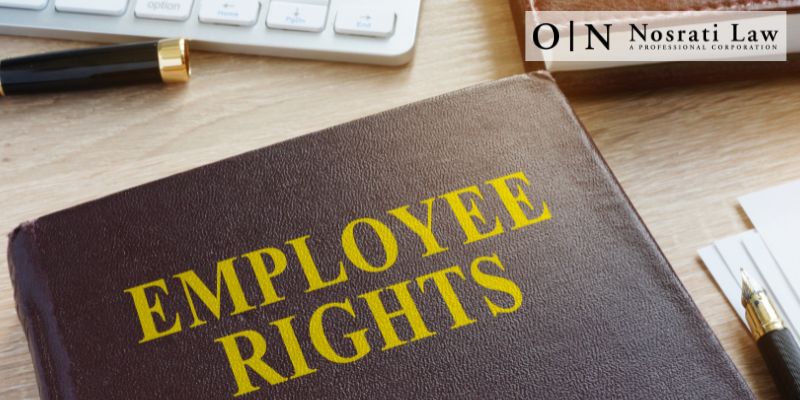
FREE CONSULT
ALL FIELDS REQUIRED*
NO RECOVERY NO FEE
California has enacted laws to protect employees and their rights, but many of the laws that are enacted to protect employees in the pandemic are federal. The Families First Coronavirus Response Act (FFCRA) enacted two federal mandates that protect employees of business owners with fewer than 500 employees who needed to miss work for COVID-19 pandemic-related reasons. These mandates went into effect on April 1, 2020 and apply to any leave taken from that date until December 31, 2020.
If you are an employee who had to be absent from work due to a COVID-19 pandemic-related issue such as taking care of your personal COVID-related health problems, caring for a family member in quarantine, caring for a child due to school closure, or other COVID-19-related issues, call our firm. You need to know your rights and protections under the law during this unprecedented time. The following information can help you better understand the provisions under the FFCRA.

The FFCRA has several parts — the most impactful include the Emergency Paid Sick Leave Act and Emergency Family and Medical Leave Expansion Act. The FFCRA requires that an employer provide employees with paid leave in situations where, due to COVID-19, employees must tend to their own health needs or care for family members.
The Emergency Paid Sick Leave Act, or EPSLA, makes it a federal requirement for employers to provide two weeks of paid sick leave for their employees. It applies to all employers with less than 500 employees. All employees are entitled to emergency sick leave no matter how long they have been employed if the reason for the leave is related to COVID-19. The EPSLA is in addition to other time off available to the employee and can be used before utilizing additional leave options. The employee also retains the option to utilize existing leave rather than choosing to use EPSLA time.
The EFMLEA amends the original FMLA by making it applicable to employers who have 500 employees or fewer and changing the eligibility requirement for EFMLEA to 30 days as opposed to the 12-month requirement under the original FMLA guidelines. It also increases the amount of leave available and makes it a partially paid leave. It also provides for job restoration under certain circumstances.
FFCRA changed many of the parameters regarding paid leave during COVID-19. Your employer is required to post a notice of these FFCRA requirements in a highly visible place. Your employer is also prohibited from disciplining, discharging, or in any way discriminating against you if you utilize paid sick leave under FFCRA. This also applies to any action you might take regarding filing a complaint related to the FFCRA.
The FFCRA applies to all private employers with less than 500 employees and certain public employers. Most federal employees are covered under Title II of the Family and Medical Leave Act. The FFCRA did not amend this, so the expanded provisions under the EFMLEA will not apply. Federal employees do qualify for provisions under the EPSLA.
Some small businesses with less than 50 employees may qualify for an exemption to the school closing and unavailable childcare provision, and some exemptions apply to emergency healthcare workers.

The FFCRA differs from Paid Family Leave, or PFL. The FFCRA states that an employee qualifies for paid sick leave if they are unable to work (or telework) due to the following COVID-19 related situations:
Based on the above situations, an employee is eligible for the following amount of paid sick leave:
The amount of pay you are entitled to while on paid sick leave is based on the circumstances surrounding the requested time off.
For more questions regarding how coronavirus has affected workplace issues, look into our Frequently Asked Questions page.
Due to the interrelationship between various parts of the FFCRA, including overlap between EFMLEA requirements and FMLA parameters and changes brought on by EPSLA, determining your rights as an employee can be overwhelming. Nosratilaw, A Professional Law Corporation has the experienced employment lawyers you need to navigate the federal regulations pertaining to FFCRA. We can help to ensure you receive all of your eligible benefits. Contact our office today for a consultation with one of our expert Los Angeles employee rights attorneys.